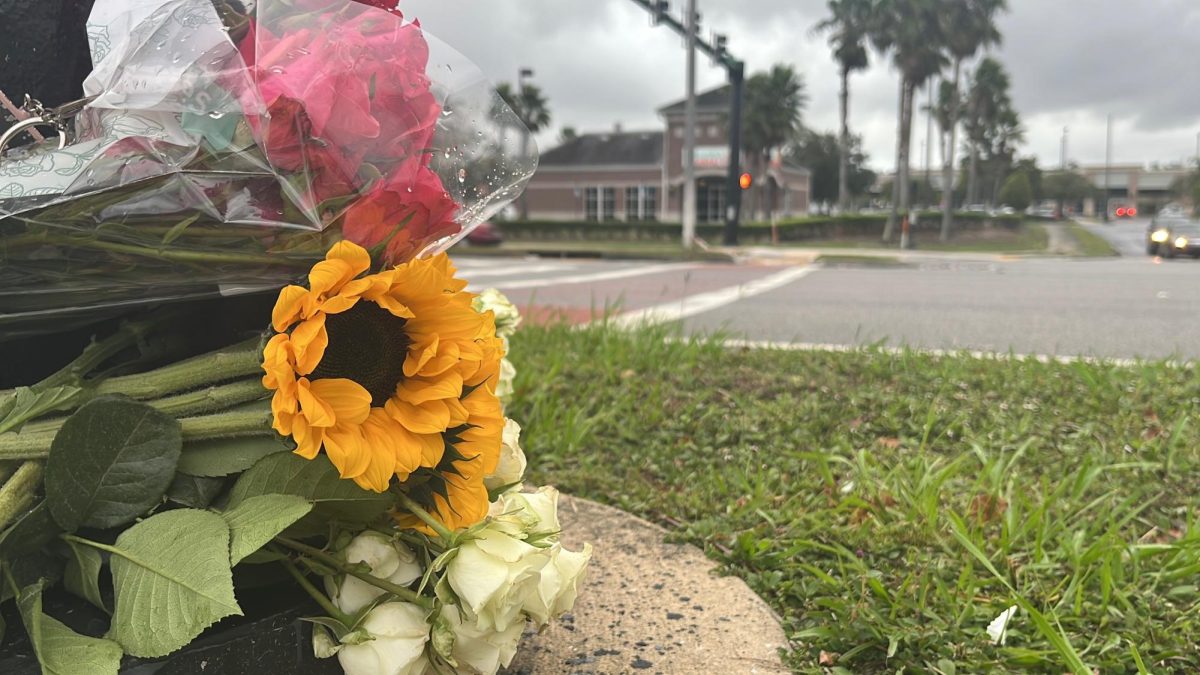Stacey Trevathan said she cannot pinpoint a science class or a Discovery Channel show that sparked her interest in the ocean. She said she just knows it has fascinated her since the fifth grade, despite a childhood in land-locked Nashville.
“There’s more to the ocean [than whales and dolphins],” she said. “It’s so beautiful, so dangerous but also full of life and diversity.”
Trevathan is a UNF student in the coastal biology master’s program whose passion for oceanic research now includes a $20,000 annual stipend for two years, up to $44,000 in aid for educational fees and a required collaboration effort with researchers from the National Oceanic and Atmospheric Administration.
Trevathan is one of seven winners of the Dr. Nancy Foster Scholarship Program. This program, which was established by Congress in 2009 to honor the life of a NOAA administrator and researcher, has a limit of two years for master’s students and four years for doctorate students.
NOAA spokesperson Bob Hansen said more than 170 students applied for the scholarship.
Up to $12,000 for educational fees, like tuition and books, are awarded to participants per year, a maximum of $24,000 in Trevathan’s case. The amount would depend on how much that specific university’s fees are, NOAA Spokesperson Priti Brahma said.
All participants must complete at least one research collaboration with scientists at a NOAA facility, which is funded by a separate travel expenses award of up to $20,000 to help one collaboration for master’s students, but the amount of financial aid depends on the student’s travel expenses. Master’s students can also have a second collaboration at their own expense, Brahma said.
Brahma said she could not comment on Trevathan’s application or why she was selected because of confidentiality of students’ applications. Brahma did say the scholarship’s criteria includes a need for financial aid and a research proposal that pertains to marine biology, maritime archeology and oceanography.
Trevathan, who is in her first year with UNF’s coastal biology program, said the scholarship relieved some of her financial stress while offering her an opportunity to research seagrass’ self-defense mechanisms with scientists in her field.
“It’s the next step in my career, as a researcher, as a scientist, as a marine biologist,” she said.
Trevathan’s research will examine how the plants’ self-defense mechanisms work when they are healthy and when they are stressed because of changes in their environment. The research is looking at how a particular pathogen — labyrinthula — behaves at a cellular level when it has infected seagrass.
Labyrinthula, which is sometimes benign, causes black lesions on seagrass that spread and hinder the plant’s ability to photosynthesize and get nutrients. It infects its neighbors when it touches them, Trevathan said.
Acres of seagrass waste away and affect sediment stability, food supply for various organisms and nursery environments where many species of fish develop into adults, both Trevathan and her faculty advisor, Dr. Cliff Ross said.
The biology professor had the initial idea for the research that he will be working on with Trevathan and said he explained the research to her as 10 percent fieldwork and 90 percent lab work. Trevathan was not discouraged by this type of research, despite any learning curve, he said.
“Everything we’ve done so far, she’s accomplished it and mastered it pretty quickly,” Ross said. “I’m looking forward to working with her on this big mystery.”
He said researchers know little about labyrinthula because it has not been studied as much as the pathogens that affect agricultural products, which more directly affect humans.
Studying these adverse effects on the coastal habitat appealed to Trevathan’s love of conservation and interest in research, she said. She said she took two years off after graduating from Coastal Carolina University in South Carolina to work for Wildlife Action, a not-for-profit conservationist group.
“My boss at Wildlife Action mentored me on conservation, never backing down on where you want to go … striving to do what’s best for the environment,” she said.
Trevathan liked learning and doing things previously unknown; even though the thought of doing research like this had never crossed her mind when she was in love with the ocean as a kid, she is open to any opportunities that develop to pursue her interests in research and conservation, she said.
“I wouldn’t be opposed to traveling around the world to study this stuff,” she said. “Marine conservation is what I want to do for my life’s work.”











